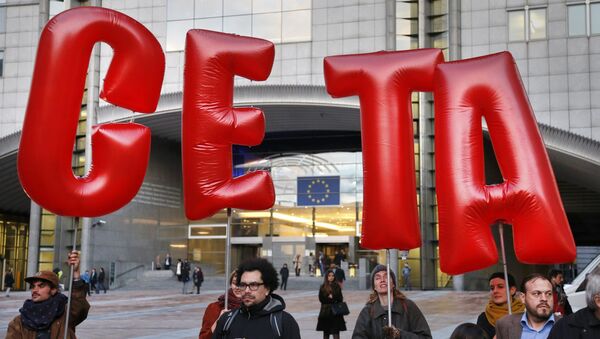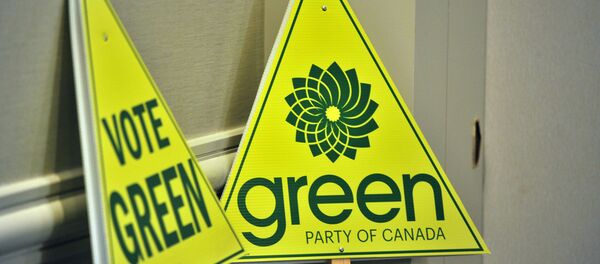Highly controversial CETA, aimed at establishing a free trade zone between Canada and the European Union, was signed last month by Canadian Prime Minister Justin Trudeau, European Council President Donald Tusk and European Commission President Jean-Claude Juncker.
"Although the CETA has been signed, we plan to bring an injunction to stop ratification/implementation until the Court hears the case," Canadian constitutional lawyer Rocco Galati said, adding that he hoped "to be in Court, on the injunction, in the next 5-7 weeks".
"There are much bigger constitutional breaches under our system, which is NOT a unitary system, but one where Provinces have EXCLUSIVE jurisdiction over which the Federal government has NO say, such as Natural Resources, Health, Education, etc. In addition, Native rights are enshrined in our constitution, as are the citizen's Charter rights," Galati elaborated on the main grievances with CETA.
He also mentioned the recent precedent in the United Kingdom, where the British High Court ruled that Royal Prerogative cannot be used to bypass the parliament with respect to Brexit.
"We made the same challenge with respect to all trade treaties," Galati stated.
On November 3, the British High Court ruled that the UK government needs parliamentary approval to start the process of leaving the European Union, potentially delaying Prime Minister Theresa May's Brexit plans. The government announced it would appeal against the High Court ruling with Britain's Supreme Court being expected to consider the case early December.




